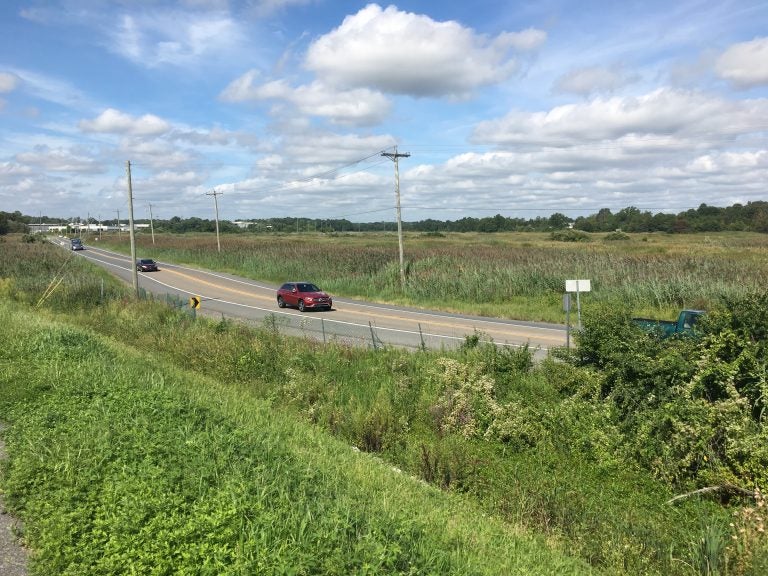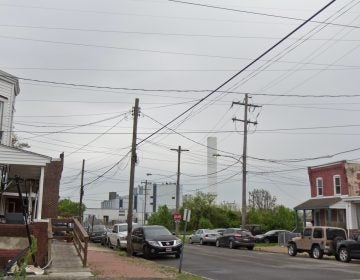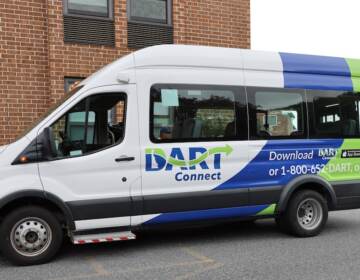New federal highway funding bill could help protect roads from sea level rise
A new transportation bill making its way through Congress calls for money for resiliency projects to alleviate flooding issues in states like Delaware.

This section of Rt. 9 south of New Castle, Delaware frequently floods during heavy rains and high tides. U.S. Sen. Tom Carper of Delaware visited the area Monday to talk about a federal funding bill to improve resiliency for low lying roads. (Mark Eichmann/WHYY)
A new transportation funding bill making its way through Congress could help protect roads from the threat of sea level rise. The legislation, called America’s Transportation Infrastructure Act, seeks $287 billion to improve the nation’s highway infrastructure. That’s a nearly 28% increase over current federal funding levels, according to U.S. Sen. Tom Carper of Delaware.
Carper toured four locations in the state that are among the most susceptible to flooding. Sites such as Route 9 south of New Castle along the Delaware River would be quickly overrun with water as seas rise.
“Route 9 here is a prime example of that, but there are more up and down the state that we’ll be visiting today, where the roads are impassable many times of the year, not just during a hurricane or a nor’easter…,” Carper said in a news conference Monday morning alongside the roadway. “When heavy rains line up with high tides, people can’t get through.”
Over five years, the legislation earmarks nearly $5 billion to fund resiliency projects for areas like this. Delaware is studying this area and others to determine the best way to alleviate flooding problems.
“We have three main options we’re looking at,” said DelDOT deputy director Mark Lutz. The agency’s planners are skeptical that just improving drainage in the area will be enough. “We have bigger projects that would either raise the road on its current alignment, or look at a whole new alignment that would just kind of cut the corner of these curves out here and get a higher elevation of the road so it floods much less frequently.”
Projects that would raise the road or change the alignment come with big price tags. “Right now, in our capital plan we have money for the study only, we don’t have any money for right of way or construction or any of the big-dollar things like that,” Lutz said.
If it is approved, this would be the first transportation funding bill in history to include an entire section dedicated to addressing climate change. It also includes a $1 billion grant program for electric-vehicle charging stations and incentives for improving carbon-reduction performance in cars.
The Senate Environment and Public Works Committee unanimously passed the legislation last month. The current transportation funding authority expires in September 2020.
WHYY is your source for fact-based, in-depth journalism and information. As a nonprofit organization, we rely on financial support from readers like you. Please give today.





